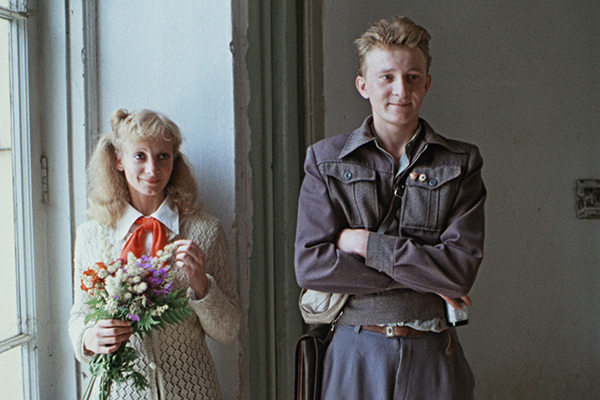Treasures & Curiosities
The Ideal Landscape
PostED on 13.10.2025
In Estonia of the 1950s, then under the control of the USSR, a member of the Communist Party is sent to an agricultural farm...

© DR
The Ideal Landscape (1980)
There, he discovers a supportive, iconoclastic population that lives in harmony with its environment. The Ideal Landscape shows with magnificent poetry, as energetic as the icy, invigorating water of a river, that life cannot be contained by a dictatorship, that it will always overflow. To portray this message, Peeter Simm makes extensive use of images of man in relation to nature. He contrasts the political rhetoric of the time with scenes of life in the fields, diving into water, a strange and joyful dance, showering in the great outdoors. The director also makes use of highly evocative soundscapes, such as the hum of agricultural machinery, birds singing and music that suddenly bursts forth. The film gives the viewer the sensation of feeling everything deeply, whether it be footsteps in the mud, tree branches to be avoided, or the breath of bodies in motion. The Ideal Landscapethus forms a fluid ballet of villagers who know each other very well and know the ground they walk on. The warm, deep light creates an uncanny impressionistic feeling, so specific that it seems eternal. It is a living tableau, a true ideal landscape where everything can be interpreted: pure and impure beauty, and where the pulse of life is everywhere. But above all, it is a film with a very current theme: what are we doing with this land that we inhabit ?
Virginie Apiou
The Ideal Landscape by Peeter Simm (Ideaalmaastik, 1980, 1h30)
4K Restoration by the Estonian Film Institute with the cooperation of the director.
The film is labelled Lumière Classics.
DCP creation with French subtitles (VOSTF) by the Estonian Film Institute exclusively for the festival.
Our thanks to the Estonian Film Institute.
Pathé Bellecour Mon13 7.15pm
In the presence of Arvo Iho (the film’s director of photography) and Edith Sepp (Estonian Film Institute)
Institut Lumière (Villa) Tue14 2pm
In the presence of Arvo Iho (the film’s director of photography) and Edith Sepp (Estonian Film Institute)

